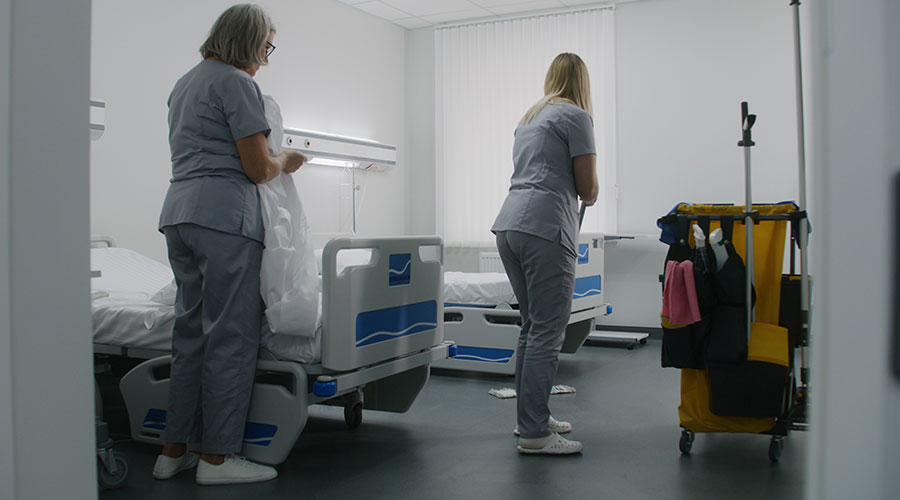Each year, millions of patients contract infections in hospitals and other healthcare settings, creating a tremendous burden on healthcare systems and public health in general.
According to the Certification Board of Infection Control and Epidemiology, Inc. (CBIC), preventing these infections has the potential to save lives, reduce illness and disability, and avoid billions of dollars in unnecessary healthcare expenses.
As part of International Infection Prevention Week (IIPW), October 20-26, CBIC will be honoring individuals certified in infection prevention and control with Certified Infection Preventionist (IP) / Infection Prevention and Control Professional (ICP) Day on Tuesday, October 22. The CIC® credential, administered by CBIC, identifies healthcare professionals who have shown a mastery of knowledge in infection prevention and control.
Those who have earned their CIC® certification are responsible for developing and implementing infection prevention and control measures, educating healthcare workers and the public on infection prevention, analyzing infection data to assess effectiveness of actions, and pursuing the condition of zero infections in all healthcare settings.
“CIC® certification demonstrates the ability to apply the knowledge required to be a competent infection prevention and control professional,” said CBIC President Craig Gilliam, BSMT, CIC. “CBIC firmly supports the premise of infection prevention week that ‘everyone plays a role in infection prevention’ and that collaboration among stakeholders is imperative to reduce infections.”
International Infection Prevention Week was established in 1986 to promote the work of infection prevention and control professionals and educate the public on the importance of preventing infection. IIPW is sponsored by the Association for Professionals in Infection Control and Epidemiology, Inc (APIC) and supported by the Society for Healthcare Epidemiology of America, (SHEA), and many other association partners.
“IIPW is an important time to focus on the need for certified infection preventionists,” said APIC President Patti Grant, RN, BSN, MS, CIC. “IIPW is the perfect time to stress the importance of board certification as the standardized demonstration of competency that IPs need to help us reach our goal of reducing infections worldwide.”
The CIC® credential is supported by numerous infection control organizations, including APIC, CHICA-Canada and IFIC. CHICA-Canada President Bruce Gamage, RN, BSN, CIC, said “This credential is recognized internationally as a symbol of excellence in the practice of infection prevention and control.”
The Certification Board of Infection Control and Epidemiology, Inc. was founded in 1981 to protect the public by raising the standard of the infection prevention and control profession through the development, administration and promotion of an accredited certification process. The CIC® certification is held by over 5,400 infection prevention and control professionals working in hospitals, long-term care facilities, ambulatory care centers, and other healthcare settings throughout the world. For more information, please visithttp://www.cbic.org.

 Disinfectant Dispensers in Healthcare Facilities Often Fail to Deliver Safe Concentrations: Study
Disinfectant Dispensers in Healthcare Facilities Often Fail to Deliver Safe Concentrations: Study Duke University Health System Receives $50 Million for Proton Beam Therapy Center
Duke University Health System Receives $50 Million for Proton Beam Therapy Center UT Southwestern Experiences Data Breach Through Calendar Tool
UT Southwestern Experiences Data Breach Through Calendar Tool Protecting Patient Data: Strategies and Tactics
Protecting Patient Data: Strategies and Tactics Duke Health to Acquire Lake Norman Regional Medical Center
Duke Health to Acquire Lake Norman Regional Medical Center